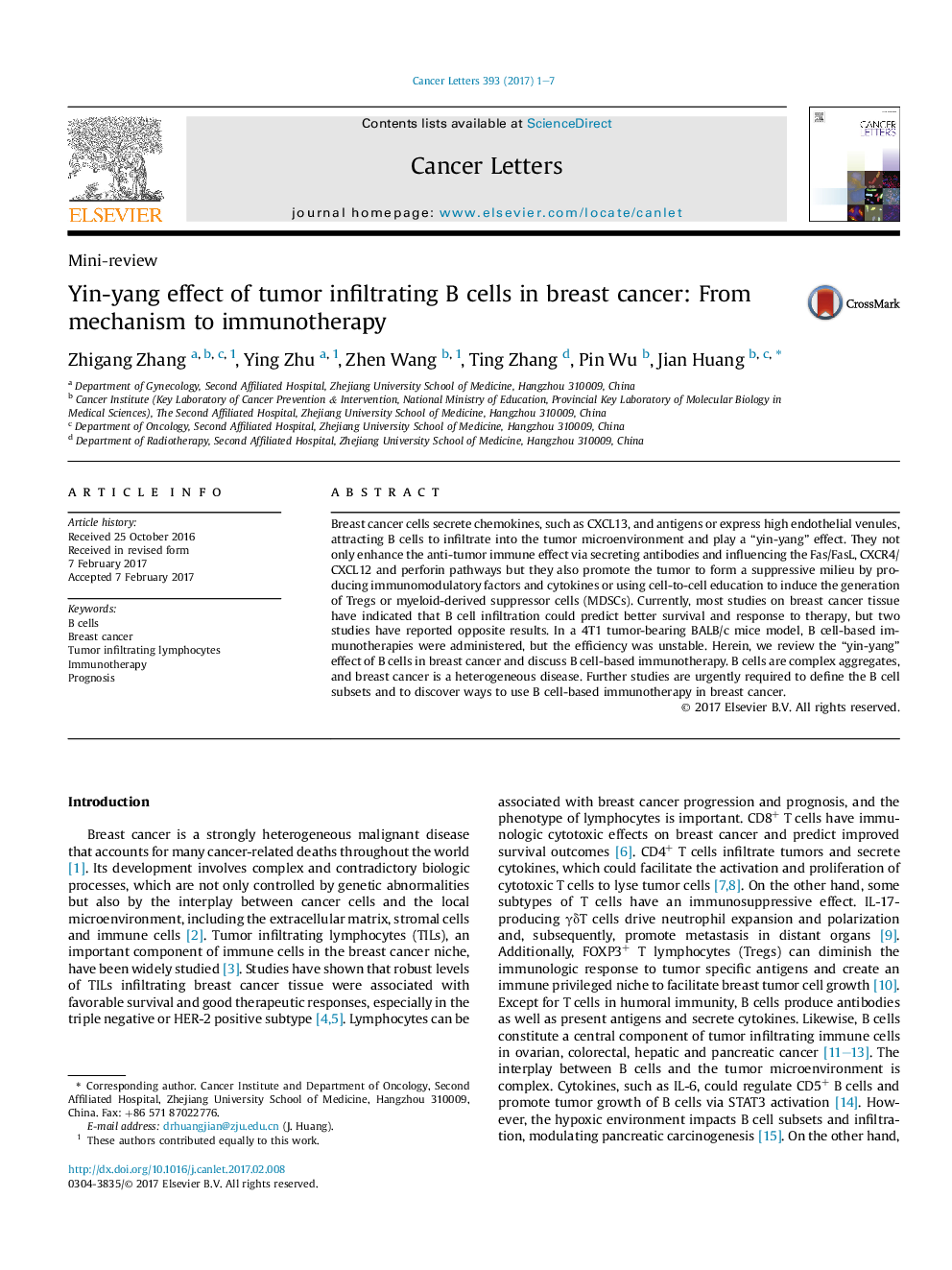| Article ID | Journal | Published Year | Pages | File Type |
|---|---|---|---|---|
| 5525645 | Cancer Letters | 2017 | 7 Pages |
â¢Breast cancer cells secrete chemokines or antigens, attracting B cell infiltration into the tumor microenvironment.â¢B cells enhance the anti-tumor immune effect via secreting antibodies and influencing the Fas/FasL, CXCR4/CXCL12 and perforin pathways, but they also promote the tumor to form a suppressive milieu.â¢Tumor infiltrating B cells in breast cancer can sometimes predict the survival and treatment response.â¢B cells based immunotherapy maybe a new approach for breast cancer precise treatment.
Breast cancer cells secrete chemokines, such as CXCL13, and antigens or express high endothelial venules, attracting B cells to infiltrate into the tumor microenvironment and play a “yin-yang” effect. They not only enhance the anti-tumor immune effect via secreting antibodies and influencing the Fas/FasL, CXCR4/CXCL12 and perforin pathways but they also promote the tumor to form a suppressive milieu by producing immunomodulatory factors and cytokines or using cell-to-cell education to induce the generation of Tregs or myeloid-derived suppressor cells (MDSCs). Currently, most studies on breast cancer tissue have indicated that B cell infiltration could predict better survival and response to therapy, but two studies have reported opposite results. In a 4T1 tumor-bearing BALB/c mice model, B cell-based immunotherapies were administered, but the efficiency was unstable. Herein, we review the “yin-yang” effect of B cells in breast cancer and discuss B cell-based immunotherapy. B cells are complex aggregates, and breast cancer is a heterogeneous disease. Further studies are urgently required to define the B cell subsets and to discover ways to use B cell-based immunotherapy in breast cancer.
